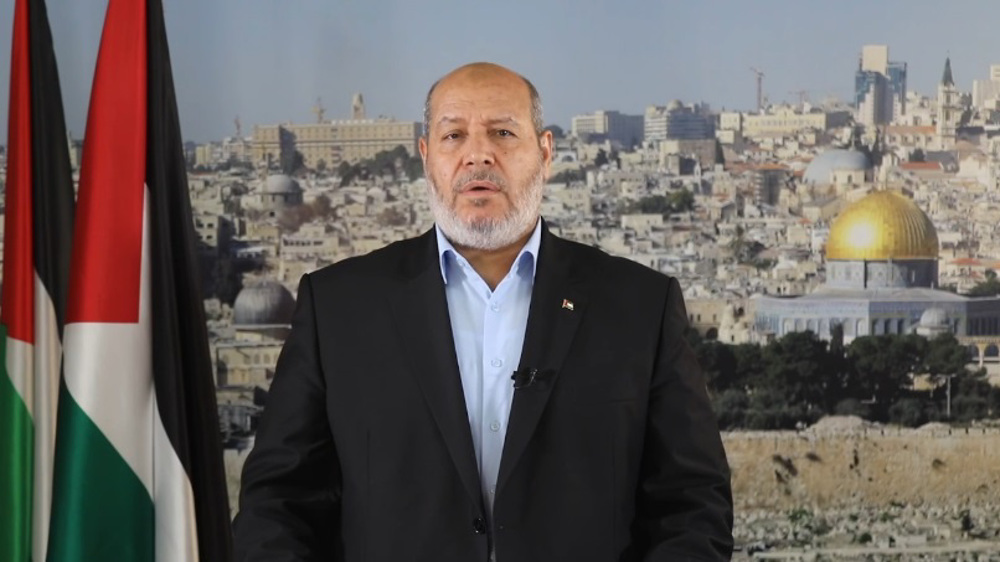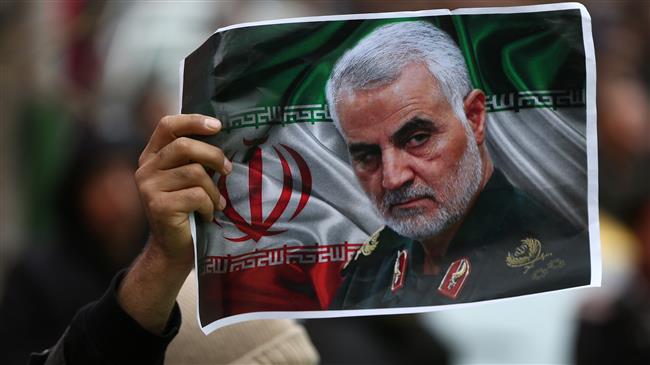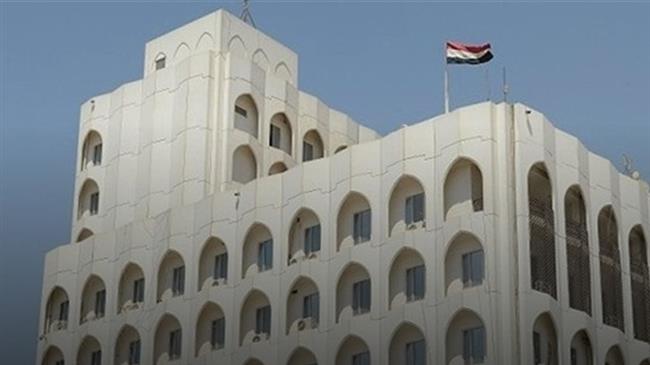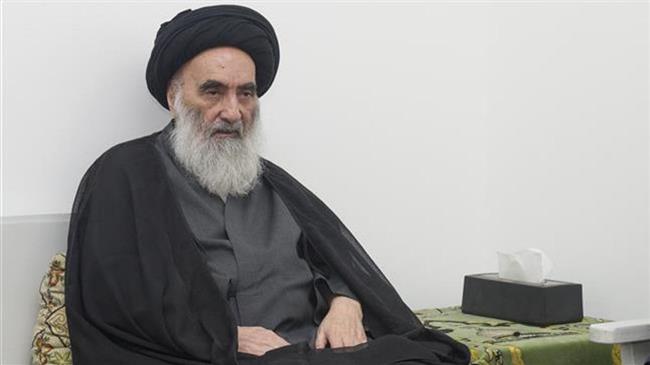Millions pack Tehran streets to pay homage to Gen. Soleimani
Millions of Iranians have packed the streets of Tehran to pay homage to the Middle East's most prominent anti-terror commander General Qassem Soleimani who was assassinated on US President Donald Trump's order Friday.
A huge sea of mourners, streaming from all the adjoining streets in freezing temperatures, descended on the iconic Engelab Square in central Tehran Monday morning before rallying to Azadi Tower in the capital's west.
Chanting "Death to America" and "Death to Israel," they carried portraits of their national hero whose assassination in a US airstrike at Baghdad airport has generated an outpouring of anger and patriotism across Iran and elsewhere, with vociferous calls for revenge.
A correspondent for the Islamic Republic of Iran Broadcasting (IRIB) said he had not seen such a crowd in 20 years in Tehran, where important occasions usually draw people in millions.
Leader of the Islamic Revolution Ayatollah Seyyed Ali Khamenei led the prayers over the general's coffin and the remains of his companions at Tehran University, his voice cracking several times with emotion which caused the massive crowd to weep.
The coffins of Gen. Soleimani and Iraq's anti-terror commander Abu Mahdi al-Muhandis, who was also assassinated in Friday’s attack, were draped in their national flags and passed from hand to hand across the heads of mourners.
General Soleimani's daughter, Zeinab, addressed the crowd, saying "the name Haj Qassem Soleimani is now shaking the nest of Zionism, Takfirism, and the order of hegemony."
"America and Zionism should know that my father's martyrdom has awakened more human instincts on the resistance front. It will make life a nightmare for them and shatter their spider houses," she said.
Hamas chief Ismail Haniyeh also paid tribute to "this great commander," calling him three times in succession as the "martyr of Quds" in reference to the occupied Jerusalem al-Quds.
"This brutal crime perpetrated by the Americans shows the cruel and barbaric spirit that is causing all the atrocities and bloodshed in the blessed land of Palestine," he told the mourners in Tehran.
Iranians mourn for lt. gen. Soleimani, companions in capital Tehran- #Soleimani #DecisiveResponse #Iran #SoleimaniAssassination https://t.co/Hgv2biAVAI
— Press TV (@PressTV) January 6, 2020
The US assassination of the top Iranian commander along with Muhandis, the deputy head of Iraq's anti-terror Popular Mobilization Units, and eight others has sent shock waves across the world.
It has forged greater unity in the region against US interventionism, with insistent calls for revenge being echoed across the Muslim world.
Both Soleimani and Muhandis played a key role in defeating Daesh which at its peak, threatened a complete take-over of Iraq and Syria.
Gen. Soleimani's popularity transcends geographical boundaries, and many people across the Middle East and beyond regard him as the figurehead in defeating Daesh and other Takfiri groups.
His humble persona and devotion to the security of the regional countries and the Palestinian cause made him a darling of the masses in Iran, Iraq, Syria, Lebanon and even the Palestinian territories.
Hundreds of thousands of Iraqis chanting "Death to America" on Saturday joined the funeral procession for Gen. Soleimani and Muhandis in Baghdad and the holy cities of Karbala and Najaf.
The assassination has enormously riled the Iraqis, harkening back to the years following the American invasion of Iraq in 2003, which led to the fall of former dictator Saddam Hussein.
On Sunday, Iraqi lawmakers unanimously approved a bill, demanding the withdrawal of all foreign military forces led by the United States from the country.
Caretaker Prime Minister Adel Abdul-Mahdi said General Soleimani was a formal guest of the Iraqi government, visiting to deliver Iran's reply to a Saudi message on de-escalating tensions.
In recent months, the Trump administration has whipped up tensions to dangerous levels of a conflict by sending additional forces, warships and bombers to the Persian Gulf and Saudi Arabia, citing an imminent Iranian threat without evidence.

On Sunday, Iran's Parliament Speaker Ali Larijani said US officials' claims that General Soleimani was developing plans to imminently attack American diplomats and service members in Iraq and elsewhere were lies.
The Iranian speaker said Trump and other US officials were only trying to deceive the Americans as he challenged them to reveal any evidence they had about the alleged Iranian plans.
Gen. Soleimani won the enmity of the US, Israel and their allies in the West and the Middle East alike, because they viewed the charismatic military tactician as a threat to their plans in a resource-rich region.
According to US reports, the Pentagon kept close tabs on the Iranian general and waited in the wings for years to eliminate him, but was always wary of the repercussions.
That was until Trump, known for his mercurial temperament and poor judgmental capabilities, ordered a fiery and fatal US drone strike early Friday on Soleimani's motorcade in Baghdad where he was on the invitation of the Iraqi government.
"To mad Trump who himself is a symbol of ignorance and a plaything of Zionism: Don't think it's all over with the martyrdom of my father!" Soleimani's daughter said.
The US assassination, in fact, has injured the national pride of the Iranians who regard Soleimani as the symbol of their overarching patriotism.
Since arriving in Iran, the cortege for Gen. Soleimani and his companions has drawn people in millions.
On Sunday, a massive multitude of men and women attending a funeral procession for Soleimani in southern Ahvaz stretched for more than 30 kilometers across the main streets and a long bridge over the Karun River.
It sent a clear message to the West and Saudi Arabia, whose media had pounced on recent economic protests in Iran to stir up secessionist sentiments in Ahvaz, home to a large ethnic Arab population.

The remains were then flown 1,600 kilometers off to the holy city of Mashhad in northeastern Iran, where millions of people wept and cried for revenge during a funeral procession.
From Tehran, Gen. Soleimani's remains will finally go to his hometown Kerman in the southeast for burial on Tuesday, with expectations of even greater multitudes from across Iran.
Trump and his secretary of state Mike Pompeo initially claimed that Iranians were celebrating the assassination, before claiming they had to attend the processions or get killed by the government. On Sunday, however, Trump threatened to attack 52 sites, including those important to the Iranian culture.
Hamas thanks Iran, Resistance Front following achievement of ceasefire in Gaza
'Capitulation': Israeli officials and media concede Gaza defeat as truce unfolds
'Gaza has won': Social media users react to ceasefire with mix of relief, joy
Iran seeks South Korea’s assistance for AI, fiber-optic projects
VIDEO | Iran's 'Eqtedar' (Power) maneuver
Israel hits HTS military target in Syria for 1st time since fall of Assad
VIDEO | Press TV's news headlines
Israel has slaughtered 13,000 students in Gaza, West Bank













 This makes it easy to access the Press TV website
This makes it easy to access the Press TV website